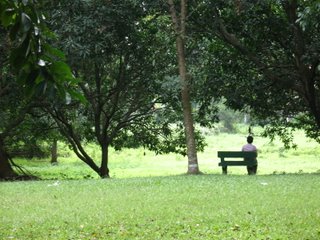
4 January 2007. Thursday before Epiphany
1 John 3, 7-10; John 1, 35-42: Discerning our vocations
Everyone has a vocation. We are all called to be Christ’s disciples like Peter and Andrew whom Christ invited to follow him. The word ‘vocation’ --- a call or an invitation --- does not only mean the priesthood or the religious life. It is a term for everybody. Fr. Thomas Green S.J. defined a vocation as “a call from God to follow Him in a particular form of life (lay, priestly, religious), which may then be further specified.” For example, if you are considering the priesthood, would you want to be a diocesan (like Fr. Raymond Arre, who is our parish priest) or a religious (like me)? And if religious, what congregation or order do you want to be: Jesuit, Dominican, Franciscan, Benedictine, Blessed Sacrament, Paulines, etc.)? In addition, if you want to be a lay person, would you want to be married or single? And in what way would you want to live your life? In other words, the call of the Lord for us is simply to be his disciple or to be truly children of God. But how to be his disciple is left for us to discern. Our personal way to the Lord has to be discerned properly.
There are many students and young professionals who have asked me about vocation. And perhaps today, we shall see certain steps to be able to discern our place in the greater scheme of things. Discernment (as distinguished from decision-making) is a prayer: it is discovering in prayer how God wishes us to act in a particular vocation (Luke 9, 57-62). Let see some steps and prerequisites.
First, ask yourself about the state of life the Lord is calling you. Is God calling you to be a lay person, a priest or a religious? If religious, what congregation or order? If lay, married or single?
In discerning the state of life, there are natural prerequisites, since ‘grace builds on nature’ (Thomas Aquinas) and the God gives particular graces in order for us to fulfill His call. A specific vocation needs sufficient intelligence for the life in question, mental health, sound common sense, and the strength of will to follow practical judgments. If you are married, it needs some manageable neurosis and transcendence of self: one cannot live with another if he or she is too self-centered to consider the needs of others other than himself. Or, as a lay person, you want to become an engineer, perhaps you must have a higher mathematical-logical intelligence to become one; and a sound common sense, or else, you may cause a bridge to break.
Second, there is an interior grace of vocation. It is not just the natural prerequisites that are needed; there are others who possess all them but may not be called to that particular state of life unless he or she considers his personal call from God. It's the "ok lang, pero hindi ko siya feel." You find where you fit and feel 'at home'. And this is done gradually over a length of time. The whole college life is a good time to discern.
A valid motivation is very much required. Why do you want to be a doctor? If your motivation is just to earn money, and nothing else, perhaps, you better consider other professions or else, you might endanger people’s lives. If your motivation is clear, that you love your neighbor and this is the best service you can give them, and that this is your response to God’s love, then perhaps, you are in the right path.
However, our motives may be mixed (part valid, part invalid such as prestige and security), our core motivation can become clearer only by prayer and the ability to face oneself squarely. The spiritual results can be discerned by concrete manifestations. If you want to be a priest, do you find yourself attending mass, not as a requirement, but you just love attending mass; do you pray often; can you live a celibate life? If you want to be married, are you able to maintain your relationships well? If you have a steady relationship (a boyfriend or girlfriend), are you faithful to him or her? What is the level of honesty and communication between both of you? And in preparing for marriage, have you tried to be financially stable so that you can actually raise your family especially your children?
Finally, we discern our vocation gradually. No one experiences what
There is a tendency for us to be sigurista --- we want to be perfectly certain. But experience tells us that things don’t get perfectly certain. Even science: certitude is determined by the same result from numerous tests. Thus, a large part of it is the leap of faith, to trust God at each step. And when our heart reaches a certain clarity, then decide --- that’s the last natural requirement. We need to decide and follow that decision headlong. If not, then perhaps be resigned to grow old asking the dreaded question, "What if?"
*someone who discerns --- a retreatant --- at Sacred Heart Novitiate in Novaliches, Quezon City.

No comments:
Post a Comment